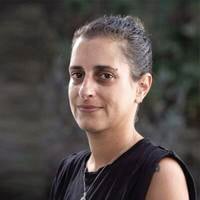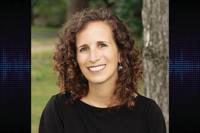Mental Health Problems of Hidden Youth in Israel
Young people need a stable and safe environment to grow up in – right now, they are often faced with uncertainty, real physical danger, traumatic stories and images. “
Israeli trauma expert Renana Danon is leading a US speaking tour that includes a stop in Metro Detroit at the Jewish Federation of Detroit’s free lunch and learn event on Sunday, Nov. 3.
Held at Congregation B’nai Moshe in West Bloomfield, “Overcoming Bullying: Israel’s Youth Mental Health Post 10/7” is open to the public and anyone interested in learning more about how the ongoing crisis How does it affect the mental health of Israeli youth?

Renana Danon
Danon, who serves as ELEM’s assistant director of clinical training, will share the important work the Israeli non-profit organization does to support at-risk youth by providing mental health care and hurt feelings. Danon oversees the training of employees and develops special training to ensure that all employees have the knowledge and tools to respond to these challenges.
Dr. Tracey Stulberg, a therapist based in Birmingham, will also speak.
ELEM serves more than 12,500 youth each year, dealing with issues such as domestic violence, substance abuse, neglect, bullying, homelessness and prostitution. The organization helps to care for and return young people to their communities through counselling, counseling and job training.
Danon says: “The state of mind of Israelis, especially the youth of Israel, is very stable these days. “The situation is so strong that a weekend can change everything completely. Young people need a stable and safe environment to grow in – now, they often face uncertainty, real physical harm, traumatic stories and images”.
Mental Health Problems of Israeli Youth
A remarkable report by ELEM completed in July 2024, six months after the attack by Hamas, found that the majority of young people in Israel have conditions related to trauma.

The eye-opening report also found that 30% of the nearly 150,000 people displaced from their homes by the ongoing conflict are young and elderly.
Data obtained from youth resettlement centers partnering with ELEM show that more than 50% of displaced youth leave their traditional school, family and community settings. Of that group, 47% started using drugs and alcohol at what ELEM calls “scary rates”.
There are several factors involved in the growing mental health problems of Israeli youth. Direct violence, exposure to harmful internet content, disrupted lives and broken families are many other factors that are damaging the mental health of Israel’s younger generations.
Of the 200 young people surveyed, a shocking 87% suffered from loneliness, depression and anxiety. Some 64% felt they had no family support, while 56% experienced poverty and hunger.
However, the news is not all bad. ELEM found an improvement in the mental health of Israeli youth compared to the first quarter at the beginning after the war. The organization says this can be linked to direct aid programs, strong communities and moving to permanent housing.
Initiatives run by ELEM, such as Breathing Zones in schools (which were established to care for teenagers and young adults exposed to direct and indirect trauma) help to reduce the impact.
These Breathing Spaces are informal mental health centers that support displaced youth from the Gaza Strip and Northern Israel, which is close to Lebanon.
In total, 2,504 young people in distress have reached ELEM’s WhatsApp and other mental health support options since July 2024. It is crisis experts who call it important to solve.
Standing in Unity
Sharing knowledge and information about the mental health problem of young people in Israel and ongoing efforts like the one started by ELEM helps to raise awareness of this growing issue in the world.
At the Federation’s Israel & Overseas free lunch and learn event on Nov. 3, visitors will hear firsthand about the impact the war has had – and continues to have – on. to the youth of Israel.
Danon will share his stories of ELEM’s work on the ground, the challenges young people face in Israel and the methods used to provide ongoing care as the situation changes.
“The Detroit lunch-and-learn will be a very interesting event for anyone interested in efforts to support young people in this terrible war,” says Danon.
“We will discuss the state of mental health of young people in Israel and how this national crisis affects young people. We will also talk about the strategies we use to help and protect young people in stressful situations.”
There will also be a Question and Answer session so that visitors can learn more about the many invisible wounds that the Israeli youth have been affected by the war.

Lior Zisser-Yogev
“This past year, since the Oct. 7 national disaster, many young Israelis have been caught up in a cycle of trauma, loss and pain,” says Lior Zisser-Yogev, who serves as community shlichah through the Jewish Federation of Detroit.
“We saw how community organizations, especially mental health care organizations, became an important part of the treatment and rehabilitation of Israeli society.
“That is why we are grateful for the opportunity to welcome Renana Danon here in Detroit, and to hear firsthand about the important work that ELEM is doing in Israel,” he added. “And sharing stories of overcoming depression and how Jewish Detroit helped support these efforts.”
Overcoming Trauma:
Mental Health in Youth Israel Post 10/7
A free lunch and learn event with the Jewish Federation of Detroit
Sunday, Nov. 3
11:30 am – 1:30 pm
Congregation B’nai Moshe
6800 Drake Road
West Bloomfield
Register at https://jlive.app/events/9281.
#Mental #Health #Problems #Hidden #Youth #Israel


